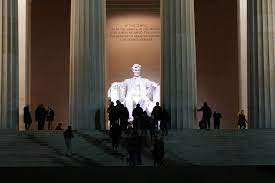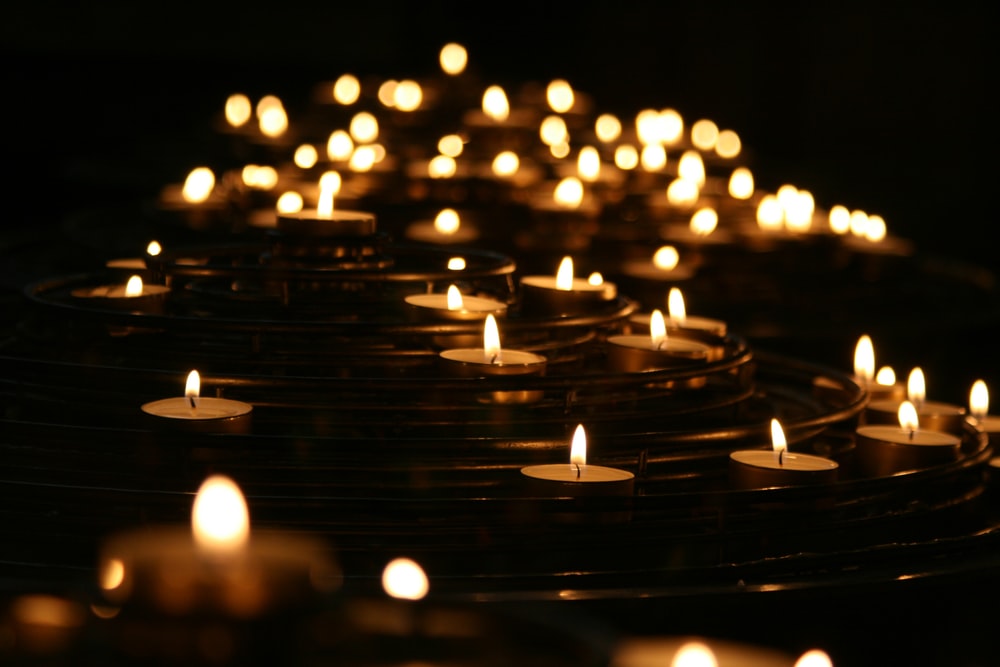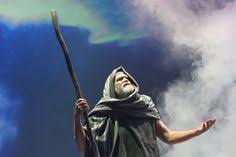Background Passages: John 15:1-11; Galatians 5:22
When I enrolled at Texas Tech University many years ago, I left a high school with 120 students to enter a college with more than 20,000 students. It was a little intimidating. My brother, who was already a senior at Tech, shared some great words of advice.
He simply said to make the enormous a little smaller by creating a connection with a group on campus.
Made sense.
I chose to make the Baptist Student Union my connection. I made great friends, discovered tremendous spiritual mentors and found Robin, my wife. As far as I am concerned it was the social trifecta of my college experience.
I maintain peripherally connected to this day. I follow the Tech BSM on Facebook, receiving information about the ways that organization continues to minister to its students.
I saw a post this week about one of those programs that encourages students to pray for their friends, their campus and the world. The BSM is encouraging alumni and others to pray as well. That, I can do. The program is called ABIDE.
After reading that post, that word kept creeping back into my thoughts this week. When that happens, it’s usually a sign that God has something he wants me to learn. That became the focus of my devotional thoughts this week.
Abide is not a word we use much anymore. At least, I don’t.
The dictionary calls it an “Old English word.” That must be why the translators of the King James Version of the Bible (living and breathing old English men) loved the word. They used it often.
By definition “abide” carries the meaning of “await, remain, lodge, sojourn, dwell, continue and endure.”
The word points me to a beautiful passage in John 15:1-11. Rather than using the more archaic “abide,” my New International Version uses “remain.” Let’s break it down.
Jesus and his disciples just left the solemn confines of the upper room. Jesus sought to ease their creeping sense of anxiety and uncertainty. As he frequently did, he drew a parable from a familiar life experience to focus their thoughts on the point he needed them to understand.
“I am the true vine and my father is the gardener. He cuts off every branch in me that bears no fruit, while every branch that does bear fruit he prunes so it will be even more fruitful. You are already clean because of the word I spoke to you. Remain in me as I also remain in you. No branch can bear fruit by itself. It must remain in the vine. Neither can you bear fruit unless you remain in me.”
Jesus wanted, needed, them to understand that even though he would go away, the connection he had with them was strong. He had already told them about the Comforter he would send in his place, but here he reminded them that the gardener had already pruned them for fruitfulness by the “word” he spoke to them.
John called Jesus the Word back in Chapter 1. The truth he shared with them, the truth they learned from him would serve them through every step of life as long as they allowed the word to remain. Everything Jesus had taught them for three years was to prepare them for this moment. If they never forgot what they had been told and put those words into practice, they would bear fruit.
Isn’t the same true for us? The pull to walk our own path grows strong when we forget what we’ve learned about God’s truth…his way and his word. When we ignore God’s word because it doesn’t fit with our personal desires.
We remain in him and he in us when we immerse ourselves in his word, putting into practice all he has taught us through the years.
So Jesus says, “Abide in me.”
“I am the vine and you are the branches. If you remain in me and I in you, you will bear much fruit. Apart from me you can do nothing…if you remain in me and my words remain in you, ask whatever you wish and it will be done for you. This is to my father’s glory, that you bear much fruit, showing yourselves to be my disciples.”
Jesus’ illustration of the vine and branches is brilliant imagery. Our ability to be fruitful hinges on our connection with the one, true vine. If we claim that all things are possible through Christ, we must also accept that nothing meaningful and lasting value is possible without him. When we pull away from the vine, we cannot bear fruit.
Galatians gives us a great idea of what that fruit might be.
“But the fruit of the spirit is love, joy, peace, patience, kindness, goodness, faithfulness, gentleness and self-control.” (Galatians 5:22)
By remaining and abiding in Christ, we find our lives demonstrate the character of Christ. We become more Christ-like. When our lives take on the character of Christ, it glorifies God and tells the world of the transforming nature of Christ. Without wearing the t-shirt, a sinful world will know are his disciples.
So Jesus says, “Abide in me.”
“As my Father has loved me, so I have loved you, now remain in my love. If you keep my commandments, you will remain in my love, just as I have kept my father’s commands and remain in his love. I have told you this so my joy may be (remain) in you and that your joy may be complete.”
Jesus knew the disciples would soon have the bottom drop out of their world. These words were meant to reassure them.
“I have loved you…remain in my love.” What must it have meant to his closest followers to hear those words? During the darkest of hours yet to come, the disciples heard Jesus remind them to cherish and cling to his love. It is the same sustaining love you and I experience when the bottom drops out of our world.
When Jesus told his disciples, “If you keep my commandments,” he wasn’t saying his freely offered love was conditional on their obedience. God’s love is always unconditional. He was saying to the disciples and to us that our obedience keeps us from drifting so far from him that we can no longer feel his love.
Everything I learn of God through his Son, his Spirit and his word, reminds me of all I’ve gained through my relationship with him.
I hear those final words spoken as clearly to me as if I were standing among those shaken disciples. I hear the promise of abiding joy, utter contentment, at the life God has given me and in the future he has planned for me.
And here is the real kicker. Hear what Jesus said in this passage. “…remain in my love…” “so that my joy may be in you…” Did you hear it? My love. My joy. That’s what he wishes for us.
No one this world has known love more deeply, more authentically, than did Jesus. No one this world has loved more deeply, more authentically, than did Jesus. His joy was absolute contentment, despite the difficult circumstances and the horrendous task he faced.
It is the fullness of that love and joy that he desires for us. Not the feeble imitation offered by the world. His love. His joy. We gain access to that depth of feeling when we remain in him.
So Jesus says, “Abide in me.”
I join in prayer with those college students at Tech who seek that connection with the Father, through his Son. Those who desire a connection with the vine. Those who wish to be pruned in order to be fruitful to the glory of God.
Jesus told us how. It simple remains for us to listen. Make the connection real and personal. Allow Jesus to “await,” “remain,” “lodge,” “sojourn,” “dwell,” “continue” and “endure”within our hearts throughout our lives. Then, do our best to “await,” “remain,” “lodge,” “sojourn,” “dwell,” “continue” and “endure” in him.
If that sounds too complicated, let’s keep it simple and go old school grounded in the old English.
“Abide in me as I abide in you.”









